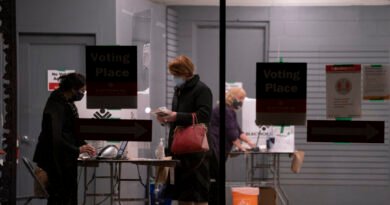Canada’s highest court rejects appeal in Ontario drug trafficking case
According to Canada’s top court, police were justified in using a drug dealer’s phone to facilitate the arrest of a suspect in a drug trafficking operation without a warrant due to the urgency of the situation. This ruling was made on Friday, dismissing an Ontario man’s appeal.
Dwayne Alexander Campbell attempted to have his drug trafficking conviction overturned, claiming that police in Guelph, Ont., violated his Charter right to be free from unreasonable search or seizure during the 2017 incident.
During the incident, police seized the cellphone of a known drug dealer and noticed four incoming text messages on its lock screen related to a suspected transaction for heroin, potentially laced with deadly fentanyl.
Subsequently, over the course of about two hours, police responded to the text messages while impersonating the drug dealer, without obtaining a warrant first. They then orchestrated the delivery of the drugs to the dealer’s residence and apprehended Campbell upon his arrival, discovering him in possession of heroin laced with fentanyl.
Campbell refuted sending some of the texts and sought to have all the messages excluded from the trial’s evidence. The trial judge determined that he did not have an expectation of privacy in the texts and therefore his rights were not violated. Even if a breach occurred, the evidence should not have been excluded, as per the trial judge’s ruling.
While Campbell contested the conviction, his appeal was dismissed. The Court of Appeal for Ontario acknowledged his reasonable expectation of privacy but deemed the search justifiable given the urgent circumstances. Campbell then escalated the case to the Supreme Court of Canada.
In a split decision issued on Friday, the Supreme Court also concluded that the use of the phone without a warrant was reasonable given the urgent circumstances.
In the majority opinion, Justice Mahmud Jamal acknowledged that Campbell had a reasonable expectation of privacy. However, police utilized an “especially intrusive investigative technique” by taking over an ongoing conversation and assuming the identity of one of the participants.
Despite this, the judge stated that under the circumstances, the police had the authority to search the text messages without a warrant.
The police believed they were dealing with an urgent situation involving the potential sale of heroin mixed with fentanyl, posing a significant risk to public safety, according to Jamal.
“Although the police had grounds to obtain a warrant, it was impracticable to obtain one as only a telewarrant would have been available at that time of day and it would likely arrive too late to complete this transaction,” he wrote.
The three dissenting judges found that the police’s actions were not justified by urgent circumstances and that searching the texts was unrelated to the dealer’s arrest for whom the phone was confiscated.
According to them, the case did not demonstrate an immediate safety threat that would warrant acting without a warrant.
“Even accepting that the quantity and type of drugs involved posed a risk of potential harm to public safety, the circumstances fall well short of the requirement of an imminent risk to an individual or group.”
Supreme Court rulings do not necessitate unanimity. Cases can be decided by a majority, with the minority also outlining their dissenting views.





